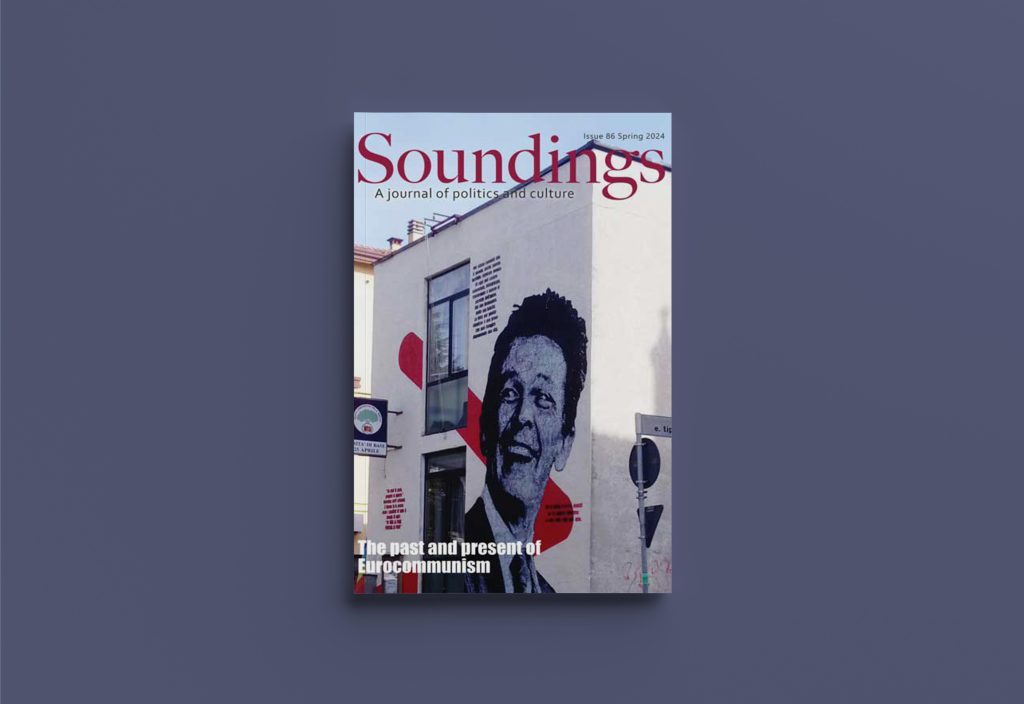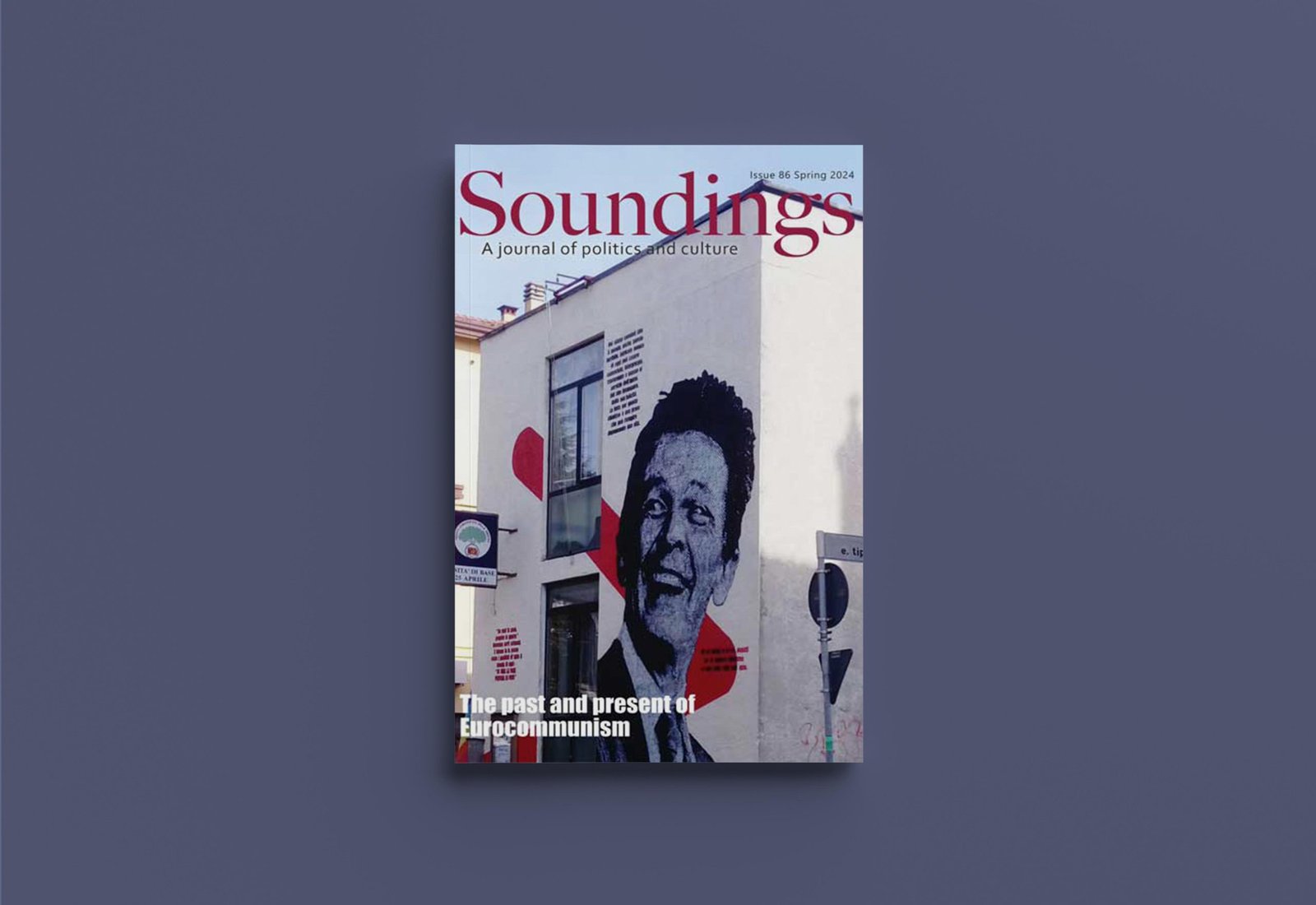In Soundings, Óscar García Agustín discusses the traces of Eurocommunism that linger on in contemporary European politics.
‘The legacy of Eurocommunism is, at the least, paradoxical. Although few voices from the left claim its validity and relevance for a left project nowadays, references to Eurocommunism … return again and again to account for proposed reforms, and internal struggles, within the left.’
Eurocommunism often resurfaces in confrontations between ‘real’ leftists or revolutionaries and those being ‘lured’ by the sirens of social democracy. It typically figures in these battles as a stand-in for giving up on anti-capitalism. In Spain, where the radical left still seeks to govern and become hegemonic, different left factions, including Podemos, have often positioned themselves in relationship to this legacy – whether for good or ill.

However, these debates have resulted in constant splits within the Spanish left. And, as García Agustín argues, ‘Reproducing the logics that create enemies within the left has not so far proven to be the most efficient strategy for expanding the political space.’
Unqualified democracy
Radical left Spanish politician Gaspar Llamazares remains a defender of the Eurocommunist legacy, which he understands as the defence of socialism and pluralism within the political and parliamentary system established during the transition to democracy after Franco. Eurocommunism, Llamazares argues, is the basis for the formation of a large progressive coalition to gradually change the capitalist system.
More recently, a new generation on the Spanish left have criticised what they see as the capitulation of the communist party during the transition, when it compromised on many of its positions in order to participate in, and secure majority support for, the new democratic constitution. Llamazares argues that the concessions made by the party were crucial for the success of the transition, and were made in the light of the balance of forces at the time.
Democracy is central for Llamazares: ‘For Eurocommunism, there is no bourgeois democracy or proletarian democracy or popular democracy: there is simply democracy.’ There are no qualifying adjectives.
Discussions over when to compromise, and how broadly one should define one’s allies, remain a central part of debate on the left across Europe. For Llamazares, Eurocommunism also influenced the construction of the European Union, and ‘this DNA’ is still there, seen in the ‘pillars that were not foreseen at the time of its inception … the pillar of the welfare state, or of justice and rights’.
Eurocommunism in the UK
The attraction of communism in the 1970s was its strong commitment to challenging the whole system rather than finding ways to manage capitalism. This was a decade in which there was a real struggle to hold on to, and even develop further, the achievements of the postwar settlement, writes Soundings editor Sally Davison. ‘1968 had happened, liberation movements were succeeding, culture was changing. At that time, many of us thought it was on the cards that we could change the system and that socialism would prevail.’
Joining an anti-capitalist party was a way of expressing this optimism. Eurocommunist parties were breaking away from their subordination to the Soviet party, and starting to base their strategies on the political realities of Western Europe; their belief in democracy had finally won out over their ingrained loyalty to the Soviet state.
In the UK discussions were beginning on a new version of ‘The British Road to Socialism’, which, after many battles, adopted the notion of a broad democratic alliance for change. ‘The CP offered me and others like me a broad context for our activism, an opportunity to participate in discussions about strategy, and membership of a party that was often convivial at branch level and sometimes innovatory at the national level.’
‘The idea of Eurocommunism allowed us to identify with a trend that was much more attractive than the Soviet model, and also – importantly – was much more successful than we were in the UK … The sense of belonging to an international movement was part of our identity, but that did not mean that we wanted to be subordinate to the governing party of a repressive and conservative state.’
Everyday communism
Rivka Saltiel, Matthias Naumann and Anke Strüver write about a very different tradition of communism, that of the Communist Party of Austria in Graz, whose slogan for the last thirty years has been ‘A party for everyday life’.
The politics of the party, which currently runs the Graz municipal government, is based on sensitivity to class injustice and engagement in the local community: its focus is on practical solidarity rather than ideological positions. The authors see this approach as ‘a local political expression of relational care’ – one which ‘facilitates trust-building through direct interaction and social engagement’. For them: ‘A communist urban politics based on everyday life, small-scale projects, caring commitments and public ownership can provide new perspectives for a left in crisis.’




Recent Comments